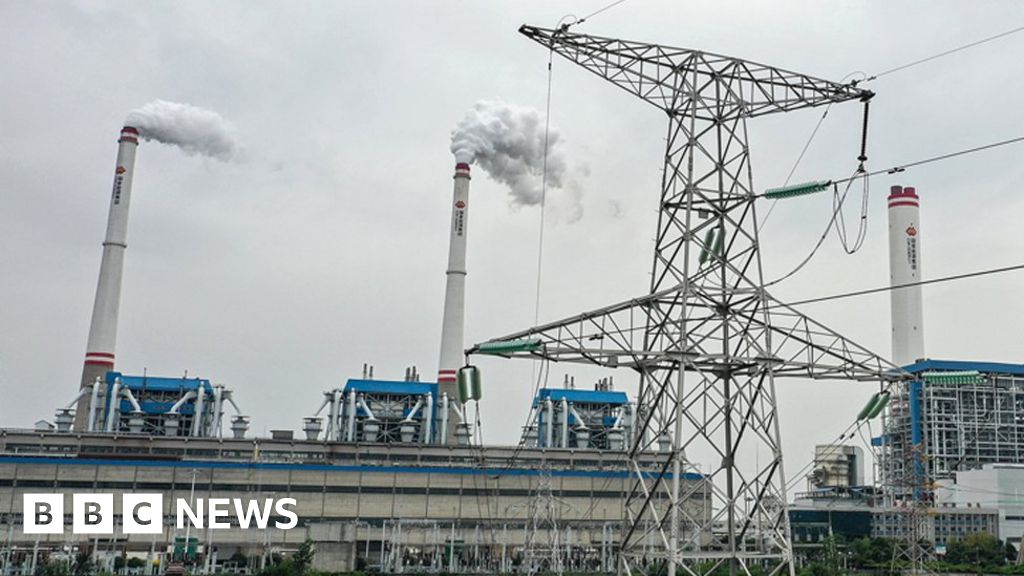So, CNN's Fareed Zakaria has explained the global energy crisis that has led to skyrocketing prices and severe shortages of reliable energy.
"(W)e do not have sufficient green energy today to replace fossil fuels. We will, but not today."
There you have it. Apparently, when you reduce your supply of energy from fossil fuels and have nothing to replace it with, you get higher prices. In fact, some traders are speculating the price of oil could hit $200 a barrel by the end of next year.

 www.wsj.com
www.wsj.com
I don't think the skyrocketing prices should come as a surprise. It seems pretty consistent with those supply and demand charts they teach in high school economics.
Still, it's been pretty funny seeing how world leaders have responded to the crisis. For example, Germany -- one of the darlings of the green world -- saw a 24% increase in its use of fossil fuels in the first half of this year. Meanwhile, Russia is putting the squeeze on Europe by controlling its supply of natural gas.
The best response of all was U.S. President Joe Biden getting down on his knees and begging the OPEC+ nations to burn more oil.
/cloudfront-us-east-2.images.arcpublishing.com/reuters/WKFJWU4YVRJU3HGQURXZFBX5AE.jpg)
 www.reuters.com
www.reuters.com
One might hope the thousands of elitists flying to the U.N.'s global-warming gab fest next Sunday are paying attention. If the well-to-do pearl clutchers truly "believe in the science" as much as they claim, they should join France's Emmanuel Macron and embrace reality. As Macron knows, the only way to significantly reduce man-made C02 emissions is through massive investments in nuclear power.
Wasting billions on wind and solar power won't get them anywhere.
They can keep peddling the renewable fairy tales, if they like. But as Beggin' Joe has discovered in the U.S., voters have a way of turning on leaders who can't provide affordable and reliable energy.
Something Kathleen Wynne also knows all too well.
"(W)e do not have sufficient green energy today to replace fossil fuels. We will, but not today."
There you have it. Apparently, when you reduce your supply of energy from fossil fuels and have nothing to replace it with, you get higher prices. In fact, some traders are speculating the price of oil could hit $200 a barrel by the end of next year.

‘Crazy’ Bets on $200 Oil Invade the Options Market
Traders are wagering U.S. crude’s rally to a seven-year high is just the beginning, despite a softening global economic expansion.
I don't think the skyrocketing prices should come as a surprise. It seems pretty consistent with those supply and demand charts they teach in high school economics.
Still, it's been pretty funny seeing how world leaders have responded to the crisis. For example, Germany -- one of the darlings of the green world -- saw a 24% increase in its use of fossil fuels in the first half of this year. Meanwhile, Russia is putting the squeeze on Europe by controlling its supply of natural gas.
The best response of all was U.S. President Joe Biden getting down on his knees and begging the OPEC+ nations to burn more oil.
/cloudfront-us-east-2.images.arcpublishing.com/reuters/WKFJWU4YVRJU3HGQURXZFBX5AE.jpg)
U.S. calls on OPEC and its allies to pump more oil
U.S. President Joe Biden's administration on Wednesday urged OPEC and its allies to boost oil output to tackle rising gasoline prices that they see as a threat to the global economic recovery.
One might hope the thousands of elitists flying to the U.N.'s global-warming gab fest next Sunday are paying attention. If the well-to-do pearl clutchers truly "believe in the science" as much as they claim, they should join France's Emmanuel Macron and embrace reality. As Macron knows, the only way to significantly reduce man-made C02 emissions is through massive investments in nuclear power.
Wasting billions on wind and solar power won't get them anywhere.
They can keep peddling the renewable fairy tales, if they like. But as Beggin' Joe has discovered in the U.S., voters have a way of turning on leaders who can't provide affordable and reliable energy.
Something Kathleen Wynne also knows all too well.









/cloudfront-us-east-2.images.arcpublishing.com/reuters/JIGNOGPQFFIVREETN7SPOSAAVE.jpg)
/cloudfront-us-east-2.images.arcpublishing.com/reuters/OWDCIB5RK5PBRHQEVYKIHHXLHQ.jpg)


